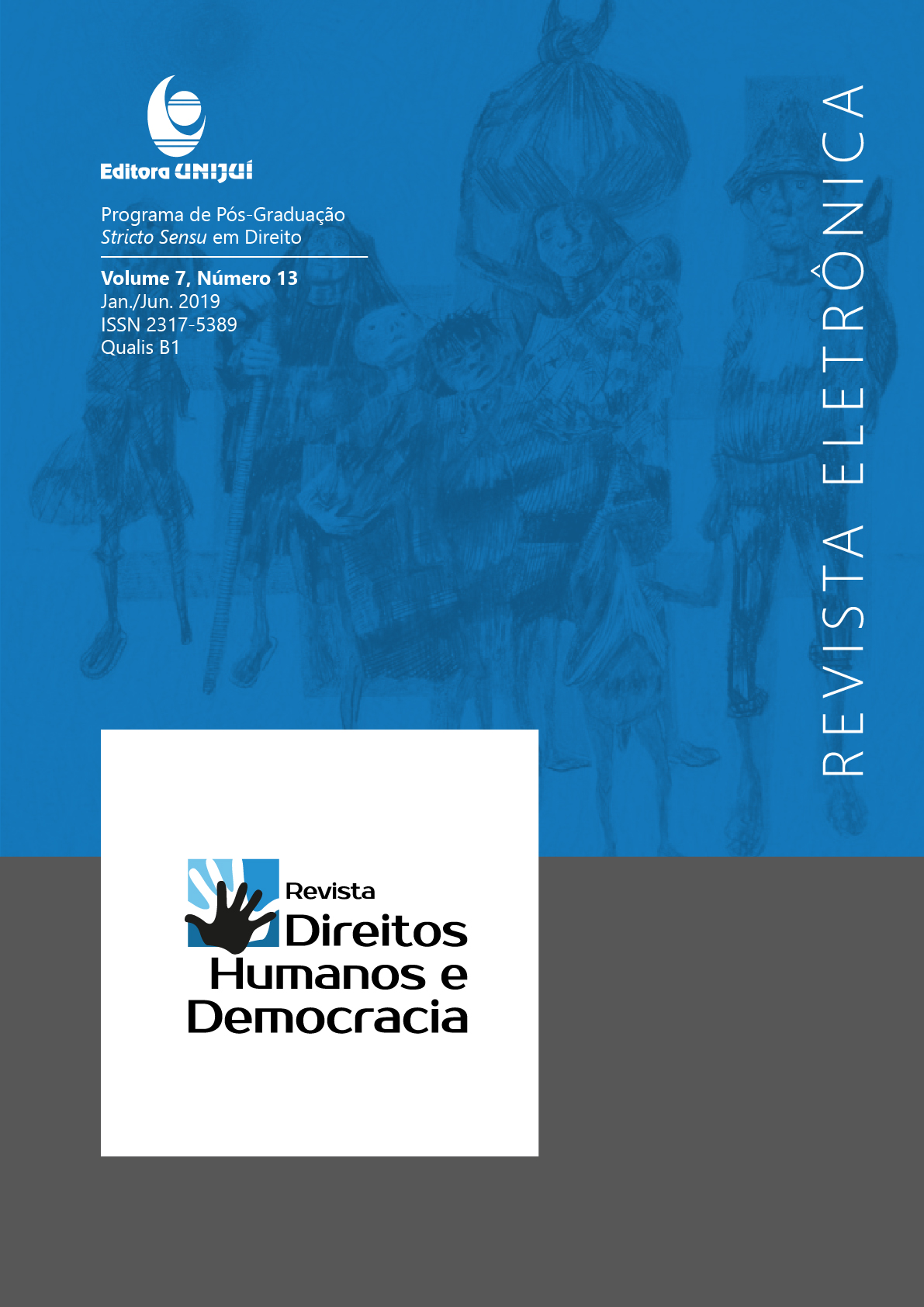DE DEFENSOR DE LA CONSTITUCIÓN A PRINCIPAL INTÉRPRETE DEL TEXTO CONSTITUCIONAL Y DE LOS DERECHOS FUNDAMENTALES: EL TRIBUNAL CONSTITUCIONAL EN PERSPECTIVA ¿ACTIVISTA VS GARANTISTA?
DOI:
https://doi.org/10.21527/2317-5389.2019.13.22-36Keywords:
Jurisprudencia Constitucional, Garantismo, Activismo, Tribunal ConstitucionalAbstract
El garantismo y el activismo gravitan como dos posibilidades enfrentadas sobre el Poder Judicial en general y, también, sobre la justicia constitucional. Se pondrá de relieve la evolución de la Corte Constitucional española (Tribunal Constitucional) que ha pasado de empezar siendo defensora de la Constitución, a tener como función primordial la interpretación del texto constitucional. Se citarán varias sentencias polémicas del Tribunal Constitucional español para poder entender la difícil labor que ha realizado en relación a delimitar las fronteras en el ejercicio de los derechos fundamentales. Se pondrá de manifiesto que el TC, además de sus luces, tiene también sus sombras y que convendría proceder a realizar algunas modificaciones, en aras de reforzar una de sus funciones como es la de ser garante de los derechos fundamentales.
Downloads
Published
How to Cite
Issue
Section
License
By publishing in the Revista Direitos Humanos e Democracia, authors agree to the following terms:
Articles are licensed under the Creative Commons Atribuição 4.0 Internacional (CC BY 4.0), which allows:
Share — copy and redistribute the material in any medium or format;
Adapt — remix, transform, and build upon the material for any purpose, including commercial use.
These permissions are irrevocable, provided the following terms are respected:
Attribution — authors must be properly credited, with a link to the license and indication of any modifications made;
No additional restrictions — no legal or technological measures may be applied that restrict the use permitted by the license.
Notices:
The license does not apply to elements in the public domain or covered by legal exceptions.
The license does not grant all rights required for specific uses (e.g., image rights, privacy, or moral rights).
The journal is not responsible for opinions expressed in the articles, which remain the sole responsibility of the authors. The Editor, with the support of the Editorial Committee, reserves the right to suggest or request modifications when necessary.
Only original scientific articles presenting research results of interest, not previously published or simultaneously submitted to another journal with the same purpose, will be accepted.
References to trademarks or specific products are intended solely for identification purposes and do not imply any promotional endorsement by the authors or the journal.
License Agreement: Authors retain copyright over their articles and grant the Revista Direitos Humanos e Democracia the right of first publication.













